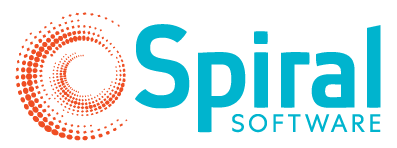Coronavirus and how we play the adaptation game
We are busy adapting one of our biggest projects to collect data and eventually provide feedback on the best treatment for the novel coronavirus outbreak COVID-19.
Coronavirus mutated (or adapted) recently to give us SARS-CoV-2 and the COVID-19 disease. Adaptation is a great skill for a virus – it’s a pretty keen skill for people and we are using it to fight back with what we do best.
Adaptability
Adaptability as a skill refers to the ability of a person or system to change their actions, course or approach in order to suit a new situation.
For us at Spiral, it means we are resourceful and don’t get stuck on one solution to solve an issue. We think ahead and have a contingency plan in place in case Plan A doesn’t work … and yep, if Plan A didn’t work we don’t whine, we adapt and move on.
We are also insanely curious because without curiosity, without asking questions there is no adaptability. Seeking answers engages us and oils the wheels of both creativity and adaptability.
Adaptability in a software platform
Our software platform, Spinnaker, is used to collect and manage data about patients enrolled in a clinical trial. We designed, coded, wrote and built Spinnaker which means that we can adapt it by changing any of the code – it’s putty in our hands! We can change it to suit novel trial designs (our favourite challenge) or any number of variations and permutations that might be in your trial.
Adaptive clinical trials
An adaptive clinical trial is a novel trial design that adapts throughout the life-cycle of the trial. The aim is to more quickly identify treatments that have a therapeutic effect. An adaptive trial may use statistical techniques to
stop or adjust patient accrual
stop or adjust the trial for success, futility or harm
drop or add treatment arms and doses
adjust doses
modify the randomisation rate to increase the probability that a patient is allocated to the most appropriate treatment
The goal being to safely bring greater benefit, more rapidly, to more patients.
Bringing it together against COVID-19
Currently (Feb 2020) there is no approved treatment for this disease. An adaptive trial is uniquely placed to find answers more quickly than the traditional randomised controlled trials; to perhaps find an effective treatment. One of our projects has this capability and we are working on adapting it further to specifically include COVID-19 parameters.
We are fortunate to work with some highly intelligent, smart, adaptable people. With researchers who have designed a highly adaptive trial which requires little change to adapt to a virus never encountered before. With statisticians who created adaptable models that allow for a new disease like COVID-19 to be quickly included in their analysis. We love being able to contribute to this with our platform.
The first phase of the COVID-19 changes are already implemented in Spinnaker and hospitals are able to add specific data relating to any patients with the COVID-19 disease. The mechanism to enable regular fast analysis of the data will soon be in place, as will the mechanism to adapt the trial randomisation ratios to safely and rapidly bring greater benefit to more patients.
I hope we don’t need all these changes, I really hope this disease does not turn into a pandemic – no pandemic would be the best news! If that is the case our work will not be wasted because the adaptations we are making will sit in the platform ready to turn on should there be a future pandemic. Our technology making it’s contribution to finding the best treatment when that happens.
Take care,
Audrey


